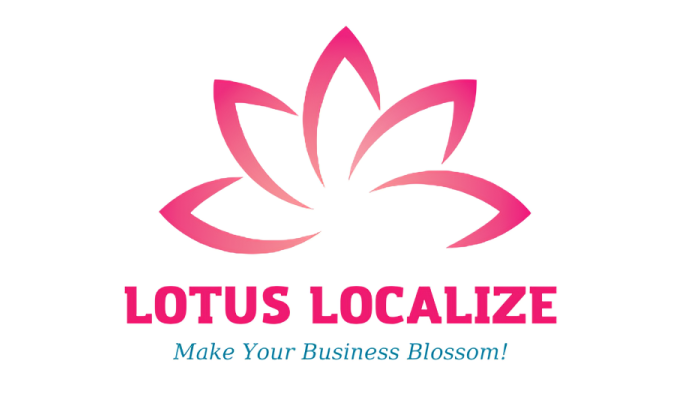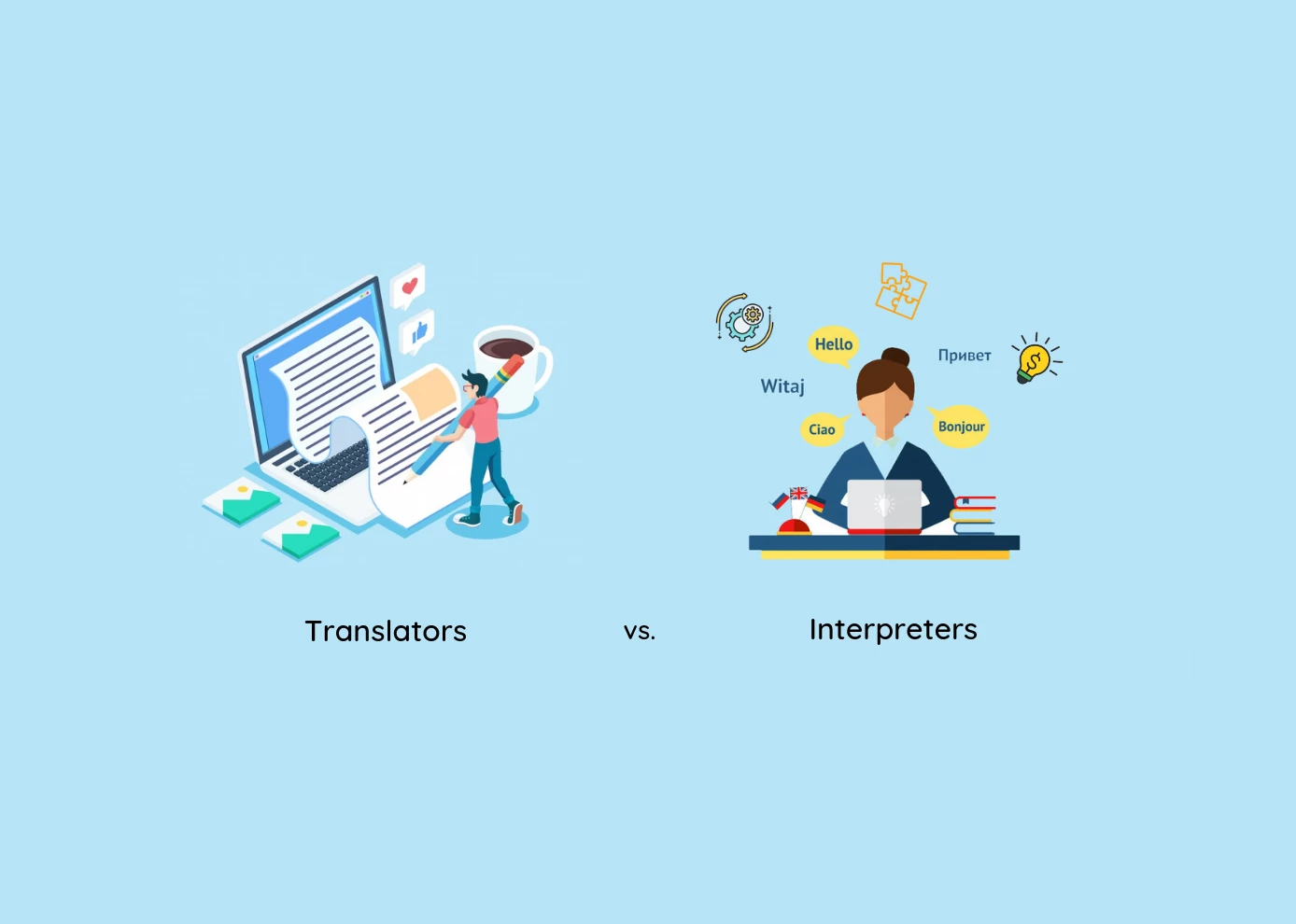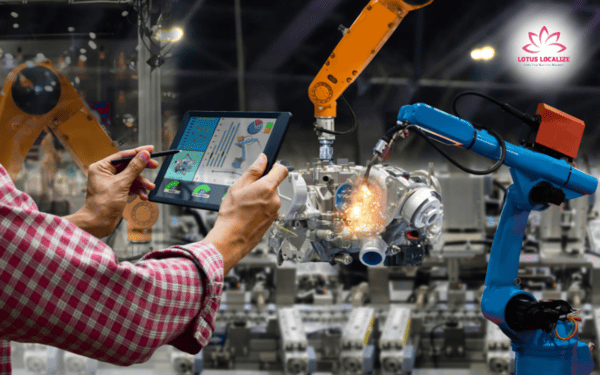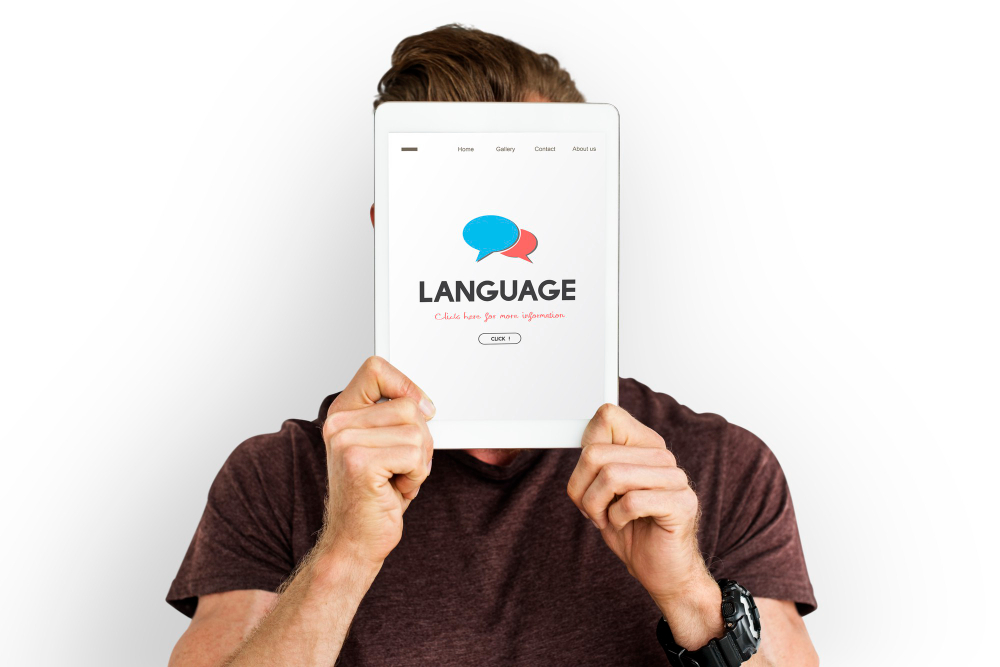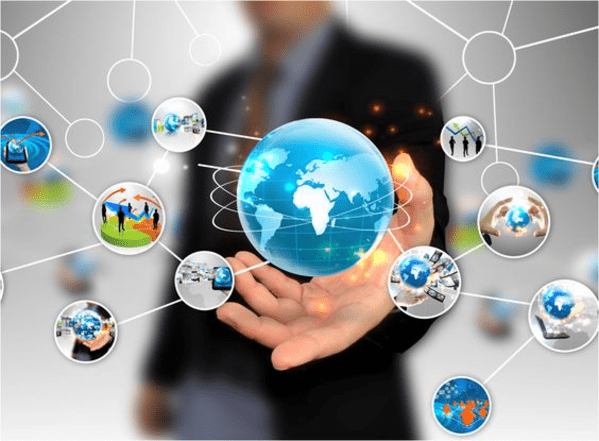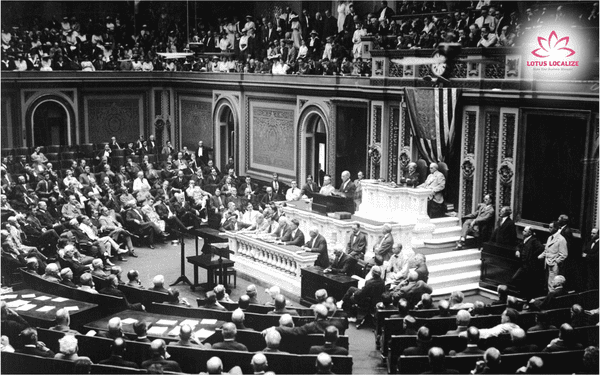Generally, the majority of customers, when in need of translation services, are often confused or have difficulty distinguishing the differences between the definitions of interpreting, and translation, …. This not only poses a barrier to individuals and businesses seeking reputable translation services but also creates challenges and time loss in the process of choosing accurate and suitable translation services. This can result in unnecessary financial waste and opportunity costs.
On this page, let’s explore together with Lotus Localize, the differences and the specific characteristics and important roles of the two services, “translation” and “interpretation.” The aim is to make the best decisions when choosing your translation services.
1. Translation and interpreting definition

1.1. Translation
Translation is the act of transferring written material from one language into equivalent written material in another language.
The task of translation is typically carried out by individuals known as “translators.” These individuals need to possess extensive knowledge of both languages as well as an understanding of the context and grammar of both languages to accurately translate and convey meaning. Translation can be applied to various types of texts, including literary, technical, medical documents, and many other fields.
1.2. Interpreting
Interpreting is the act of listening to something in one language and orally rendering (or signing) it in another language. An interpreter also referred to as an “interpreter” or “interpreting professional,” typically immediately converts content from the source language to the target language without the use of written text.
The task of interpreting requires the interpreter to have good listening skills and the ability to quickly and accurately convey meaning in near real-time. This is often needed in situations such as meetings, speeches, live television events, or on-the-spot communication between speakers of different languages.
2. Compare the similarities and differences between translation and interpretation

2.1. The similarities
The similarities between translation and interpretation services include:
Common Goal: Both types of services aim to accurately convert content from one language to another and understand the meaning.
Language Proficiency: Both translators and interpreters need extensive knowledge of at least two languages (source and target languages) to perform their tasks effectively.
Use of Tools: Both services can utilize supportive tools such as dictionaries, computers, or translation software to aid the translation process.
Responsibility for Conveying Meaning: Ensuring honesty and accurately conveying the meaning of the message from the source language to the target language is a central focus in both types of services.
2.1. The differences
However, it is important to note that there are significant differences between translation and interpretation. Translation often involves written text and is carried out more carefully, while interpretation is the direct and immediate conversion of language into spoken or verbal form. Specifically, the differences between these two types of services include:
– Translation: Involves converting written text from one language to another. Translation is often applied to documents, books, articles, and other written texts.
– Interpretation: Involves converting spoken or verbal language from one language to another. Interpretation is commonly used in direct communication situations, such as meetings, speeches, or live interactions.
– Translation: This can be performed over a longer period to ensure accuracy and the complete conveyance of meaning from the original text to the translated text.
– Interpretation: Typically occurs in real-time, instantly, and interpreters must convey meaning quickly and flexibly.
– Translation: Involves changing the language in written text, often including adjustments to grammar, sentence structure, and word choices.
– Interpretation: Requires interpreters to convert language without altering the original structure or grammar of the spoken sentence.
– Translation: Typically uses supportive tools such as dictionaries, translation software, and reference materials.
– Interpretation: Demands that interpreters perform their tasks without the assistance of writing or translation tools.
– Translation: Requires proficiency in language and knowledge of cultural aspects, context, and the specialized field of the text.
– Interpretation: Demands listening and accurately conveying spoken words in real-time, along with the ability to handle direct communication situations.
In summary, while translation and interpretation aim to convert language, they differ in data type, time, approach, and the skills required.
3. Practical Applications of Translation and Interpretation Services

3.1. When to use translation services?
Translation services have various practical applications in many fields, especially in a multilingual and multicultural environment. Below are some practical applications of translation services provided by Lotus Localize:
- Translation of business contract documents: In international trade transactions, translating contract documents, agreements, and legal texts is crucial to ensure understanding and accurate agreement between parties.
- Translation of technical documents: In the fields of engineering and technology, translation helps convert product documents, user manuals, and technical specifications from one language to another to support the development and use of technology products globally.
- Medical translation: In the medical field, translation enables the widespread dissemination of information on research, medical records, and treatment guidelines to the international community. This is essential for sharing knowledge about healthcare and medical research.
- Literary translation: In the literary field, translation facilitates the publication and sharing of literary works, comics, and films worldwide. This allows the culture and art of a country to be understood and appreciated by international readers and audiences.
- Website and mobile app translation: To expand the market and reach global customers, businesses often use translation services to translate their websites and mobile apps into multiple languages.
- Translation in teaching and learning: In the field of education, translation is used for multilingual teaching and learning, helping students and learners understand lectures and teaching materials.
- Translation in politics and diplomacy: Political translation is crucial in international meetings, multilateral forums, and national meetings to ensure understanding and accurate communication in international communication.
In summary, translation services play a crucial role in building language and cultural bridges, creating understanding, and facilitating effective communication between countries and communities worldwide.
3.2. When to use interpretation services?
Interpretation services also have many practical applications in various fields, especially in the era of global connectivity and modern technology. Below are some practical applications of interpretation services provided by Lotus Translation:
- International meetings: In international meetings, interpreters help translate the speeches of participants from one language to another to ensure that everyone can understand and participate in the conversation.
- Lectures and conferences: Interpreters play a crucial role in interpreting the speeches of speakers or the content of workshops and conferences from the original language to the target language so that international audiences can access important information.
- Communication at airports and hotels: In the tourism and aviation industry, interpreters assist with communication at airports, hotels, and other stops to ensure a convenient experience for travelers.
- Healthcare communication: In the medical field, interpreters help doctors and healthcare professionals communicate with patients speaking foreign languages for diagnosis, treatment, and healthcare.
- International sports events: Interpreters often need to participate in international sports events to interpret for athletes, coaches, and managers from various countries.
- Communication in politics and diplomacy: Interpreters work in national meetings, political discussions, and international conferences to ensure smooth communication and accurate understanding between countries.
- Event organization and entertainment: Interpreters often must participate in festivals, artistic performances, and international entertainment events to ensure that actors and artists can interact with diverse audiences.
In summary, interpretation services play a crucial role in building language and cultural bridges, creating understanding, and facilitating effective communication between countries and communities worldwide in various fields
